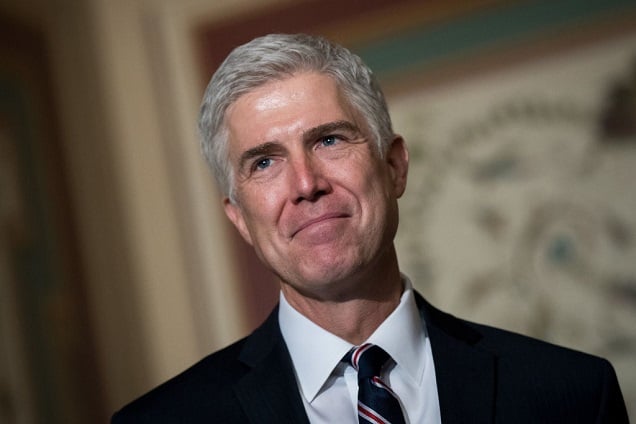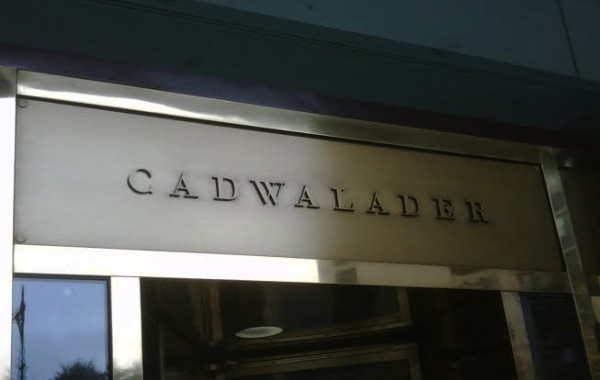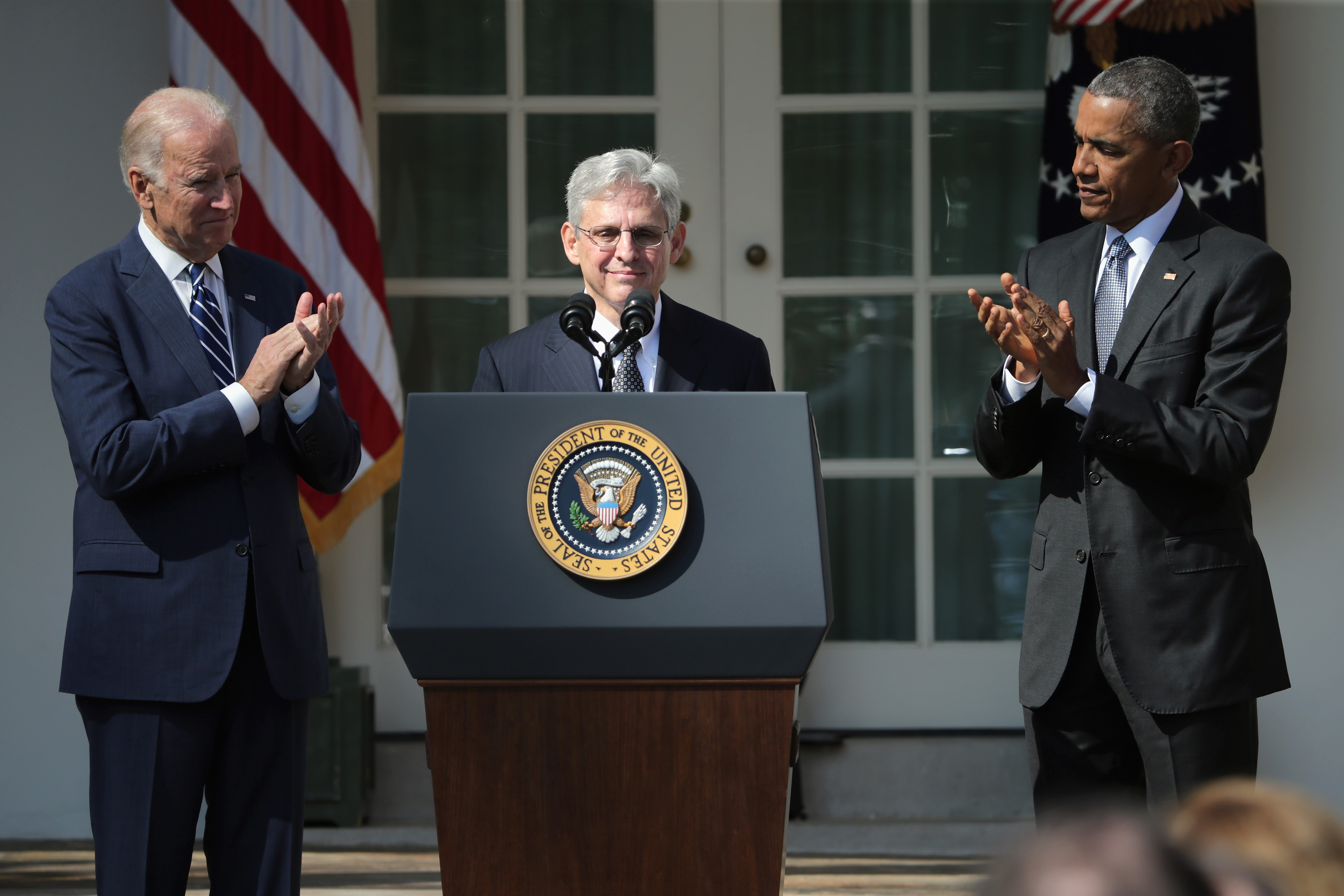
Another Day, Another Transatlantic Biglaw Merger To Create A 1600-Lawyer Megafirm
It's been less than a week since the last one, so let's have another Biglaw merger.

It's been less than a week since the last one, so let's have another Biglaw merger.

* "The chief justice, in particular, doesn’t like the court to be a disruptive force," but that might change this spring as the Supreme Court considers reversing at least three of its longstanding precedents. Trashing precedents could potentially become much easier now that Justice Gorsuch is here. [USA Today] * Berwin Leighton Paisner and Bryan Cave partners are voting on their proposed transatlantic merger, and the results are expected by the end of the month. If the tie-up is approved, BCLP -- the combined firm's new name -- will be a billion-dollar firm with 1,500 lawyers and 32 offices in 12 countries. [Law.com] * Charles Harder, the lawyer who brought down Gawker and now represents Donald Trump and members of his family, is experiencing some growing pains at his firm thanks to his presidential representation. Name partner Douglas Mirell just quit because of his "pledge to protect the First Amendment." [The Recorder] * New York Attorney General Eric Schneiderman has filed a civil rights suit against the Weinstein Company and its founders, alleging that they "repeatedly and persistently treated female employees less well than male-employees through gender-based hostile workplace harassment, quid pro quo harassment, and discrimination." [Variety] * In an effort to increase diversity, LSAC will be awarding a total of $1.5 million to five law schools so they can hold Prelaw Undergraduate Scholars programs on their campuses. Akron, Alabama, Duke, Houston, and St. John's will each receive these grants to convince college students to enroll. [Black Enterprise] * Congratulations to Charleston Law's National Tax Moot Court team, which just clinched its seventh championship title in a row. It's nice to know that students were able to rise above the school's designation as one of the "least selective law schools in the country" to create a tax law dynasty. [Post and Courier] * Remember the former Ulta employee who accused the beauty retailer of reselling used products as new? Now a concerned customer has filed a proposed class-action lawsuit over the store's "widespread and surreptitious practice" of allegedly repackaging and selling returned products. [Chicago Tribune]

Hopefully these two lovebirds can find a way to make it in this crazy world.

* It's a party, and all of Donald Trump's friends are invited! The president's longtime personal lawyer, Michael Cohen, has been dragged into the probe of Russia's efforts to influence the 2016 election. House and Senate investigators asked him to provide testimony, but he politely declined because "the request was poorly phrased, overly broad and not capable of being answered." [ABC News] * "It's nice knowing this will definitely be a beacon for other trans kids and other members of the community to look to as a source for hope." A three-judge panel of the Seventh Circuit has affirmed a lower court ruling, stating that Title IX protects transgender students' rights to use the bathrooms of their choice. This is the first time that an appellate court has issued a ruling of this kind. [Reuters] * "No one knows how many qualified individuals never even advance their names." Biglaw attorneys would usually jump at the chance to leave private practice and take a gig working for the Labor Department, but under this presidential administration, there seems to be a bit of hesitancy due to their unwillingness to "incur a lifelong Trump association." [Bloomberg BNA] * More and more Biglaw firms have decided to reevaluate the way they evaluate their attorneys. Following Allen & Overy's decision to eliminate performance reviews, Berwin Leighton Paisner, Fieldfisher, Withers, and RPC will each be changing the way they conduct their appraisal policies, and Linklaters will drop financial targets and partner reviews. We may have more on this. [Law.com] * "Death to the enemies of America! You call it terrorism, I call it patriotism. Die." Jeremy Christian, the Portland man accused of killing two men in a racially motivated attack on a train, didn't enter a plea at his arraignment. Instead, he made incendiary outbursts, inviting spectators to shout back at him, calling him a "murderer." His next hearing is on June 7. [Courthouse News Service]

* Some Biglaw firms, like Orrick, are now going to help young associates by making monthly contributions to their student loan payments. At $100 a month for 18 months, it's not a very large contribution, but it's something. We'll have more on this debt repayment plan later. [DealBook / New York Times] * Uh-oh... If you thought law firms were going to be alright in Brexit's wake, you may want to think again. Berwin Leighton Palmer -- a firm that almost merged with Greenberg Traurig -- has frozen raises and bonuses until November, citing "political and financial uncertainty in the UK." [Reuters] * As part of Thomas Jefferson School of Law's study-abroad program, Justice Clarence Thomas (who was filling in for the late Justice Antonin Scalia) was in Nice, France, last week teaching students about constitutional law. He left the city before the deadly terror attack during the Bastille Day parade. No law students were hurt. [WSJ Law Blog] * Prior to accepting his position as Donald Trump's running mate on the Republican ticket, and even prior to becoming the governor of Indiana, Mike Pence had a very short-lived career as a lawyer at a small firm. He worked there for only two years before deciding to pursue a career in politics and radio programming. [Big Law Business] * "Our clients have been under siege the last eight years by the federal government in terms of policies toward corporate America." Cleveland firms like Jones Day and Squire Patton are pulling out all the stops to host ritzy, invitation-only, business-oriented panel discussions during the Republican National Convention. [Crain's Cleveland Business]

The head of this group is a major rainmaker, but not necessarily fun to work for.

Lex Machina harnesses generative AI capabilities to revolutionize the way legal professionals interact with data to improve bottom line for their business.

* Been there, done that: The political standoff having to do with Chief Judge Merrick Garland's nomination to the Supreme Court is nothing new. When he was nominated to the D.C. Circuit by President Bill Clinton in September 1995, Senate Republicans refused to hold a confirmation vote for him until March 1997. If patience is a virtue, then Garland has got to be the most virtuous judge of them all. [WSJ Law Blog] * Is he the "most anti-gun Supreme Court nomination in decades"? Conservative group Judicial Crisis Network plans to spend $2 million on an ad campaign in opposition to Chief Judge Merrick Garland's SCOTUS nod, calling attention to his "history of general hostility to the Second Amendment," as well as his vote in the Heller case. [POLITICO] * Greenberg Traurig has called off its merger talks with London-based Berwin Leighton Paisner, citing the firm's "conservative approach to financial risk." Executive chair Richard Rosenbaum penned a 540-word break-up letter announcing the bad news. The combined firm would've had more than 2,500 lawyers. [Big Law Businness / Bloomberg] * Finally! The California Supreme Court approved of changing the state's grueling three-day bar exam to a two-day exam, effective 2017. The first test day will consist of five essays and a performance test, and the second day will be the MBE. Both days will be weighted equally, and test takers will surely be less stressed. [State Bar of California] * If you've started receiving law school admission offers, now is a great time to consider weighing your options for merit-based financial aid -- carefully. If you wind up with a conditional scholarship offer, you better make sure to read all of the fine print, because if you don't, you could wind up screwing yourself. [Law Admissions Lowdown / U.S. News]

Greenberg Traurig's CEO has criticized mergers with overseas law firms in the past, but could this particular deal make strategic sense?